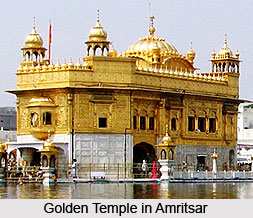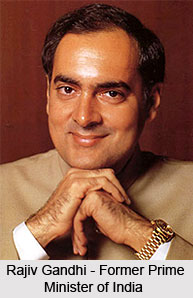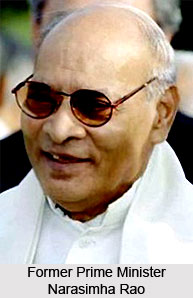 Punjab Crisis was all about the religious disparity and communal organisations on religious lines which were more important in Punjab in the nineteenth century and up to the partition of the country in 1947. The Gurdwara Reform Movement of the 1920s brought a critical change in the institutional strength and political organisation of the Sikhs as a community, for it brought into being two organisations which became the central religious and political institutions of the Sikhs. These are the Shiromani Gurdwara Prabhandak Committee (SGPC), a central administrative committee for the Punjab gurdwaras, and the Akali Dal, the political movement which led the Gurdwara Reform Movement and became the most important political organisation of Sikhs in the Punjab before and after Independence. Another special feature of the situation of Punjab was the effect of partition itself, which was a great crisis for the Sikh community. Only in March, 1966 after a change in the leadership of the Akali Dal and after the Indo- Pakistan War of 1965, in which Sikh soldiers and the Sikh population of Punjab played significant roles, was the demand for a Punjabi Suba at last approved by Prime Minister Indira Gandhi.
Punjab Crisis was all about the religious disparity and communal organisations on religious lines which were more important in Punjab in the nineteenth century and up to the partition of the country in 1947. The Gurdwara Reform Movement of the 1920s brought a critical change in the institutional strength and political organisation of the Sikhs as a community, for it brought into being two organisations which became the central religious and political institutions of the Sikhs. These are the Shiromani Gurdwara Prabhandak Committee (SGPC), a central administrative committee for the Punjab gurdwaras, and the Akali Dal, the political movement which led the Gurdwara Reform Movement and became the most important political organisation of Sikhs in the Punjab before and after Independence. Another special feature of the situation of Punjab was the effect of partition itself, which was a great crisis for the Sikh community. Only in March, 1966 after a change in the leadership of the Akali Dal and after the Indo- Pakistan War of 1965, in which Sikh soldiers and the Sikh population of Punjab played significant roles, was the demand for a Punjabi Suba at last approved by Prime Minister Indira Gandhi.
Unresolved Issues
In particular, there have been three outstanding issues which have not been resolved in the two and a half decades since the reorganisation: the status of the capital city of Chandigarh, which remains still the joint capital of Punjab and Haryana; the status of some mixed Hindi and Punjabi speaking territories in which Hindus are the major population: and the division, for irrigation purposes, of river waters which run through the territories of both states. Some observers, for the most part on the Marxist Left in India, have also laid great importance on economic factors in seeking a justification for the crisis. While such factors have most probably contributed to disaffection and displeasure among Sikhs and the absence of satisfying economic opportunities has made many Sikh youths available for mobilisation by militants, they do not explain either the origins of the current turmoil in the Punjab or the main factors which have led to its strengthening and decline into internal war.
Factors which Led to Punjab Crisis
The first factor, arising out of the historic drive inside the Sikh community to maintain internal consistency and orthodoxy and the separateness of the Sikhs from Hindus, was the development of a bitter and enormously violent confrontation between militant orthodox Sikh groups and a heterodox Hindu Sikh sect, the Nirankaris.
 The second development was a primary transformation in the context of center-state relations under Mrs. Indira Gandhi`s leadership and the subsequent adoption by the Central Government of an entirely different role in Punjab politics. During the Punjabi Suba movement in the 1960s, Prime Minister Nehru was secure in his power in New Delhi and gave his full support in the Punjab to Chief Minister Pratap Singh Kairon, who was the leading figure in that state`s politics for a decade until his assassination in 1964.
The second development was a primary transformation in the context of center-state relations under Mrs. Indira Gandhi`s leadership and the subsequent adoption by the Central Government of an entirely different role in Punjab politics. During the Punjabi Suba movement in the 1960s, Prime Minister Nehru was secure in his power in New Delhi and gave his full support in the Punjab to Chief Minister Pratap Singh Kairon, who was the leading figure in that state`s politics for a decade until his assassination in 1964.
A united Congress leadership then followed a policy of dividing the Akali Dal through a variety of methods designed to displace the more extremist Akali leaders and aid more moderate leaders to come to power. In the 1980s, in contrast, Mrs. Gandhi and the central Congress leadership followed a strategy of balancing between opposing groups. The unity of action between the central and state governments, therefore, so important in the 1960s, was absent in the 1980s. Eventually, in June, 1984, the central government felt compelled, after a sequence of assassinations of innocent Hindus in the Punjab and with a general election due by the end of the year, to launch an assault on the Golden Temple in Amritsar. Mrs. Gandhi was herself assassinated by two Sikh bodyguards on October 31, 1984. A massacre of thousands of innocent, mostly poor Sikhs, in Delhi, Kanpur, and Begusarai followed with the complicity or damaging neglect of the authorities, the police, and the Congress leaders.
The new Prime Minister, Rajiv Gandhi, reached an agreement with the Akali Dal leadership in September, 1985 to resolve all the outstanding issues. Under its terms, Chandigarh was to be transferred to Punjab within a year; the other substantive issues in disagreement were to be submitted to commissions and courts for adjudication. Sikh army deserters were to be rehabilitated, and judicial inquiries into the massacres of Sikhs in places outside Delhi were to be conducted. In elections held in the Punjab in September, 1985 in the aftermath of the Accord, the Akali Dal won a majority of seats in the Punjab legislature and formed a government under Surjit Singh Barnala. Even though Rajiv Gandhi`s policies seemed at first to involve a silent rejection of his mother`s and a return to the pluralist policies of his grandfather, the failure to put into practice most of the provisions of the Accord with the Akali Dal stood in the way of a settlement of the conflict in the Punjab and the return of civil order.
In November, 1989 Lok Sabha elections, polling was allowed in Punjab in which a section of the Akali Dal led by one of the released militants, Simranjit Singh Mann, won six of the thirteen Punjab seats, leaving only two for the Congress and the rest for other parties and independent candidates, of whom four were supported by militant groups. After the fall of V. P. Singh`s government, his successor, Chandrasekhar, made more unsuccessful efforts during his brief tenure as Prime Minister to open negotiations with militants. He also sought to re-establish the democratic process by calling for the holding of Lok Sabha and Vidhan Sabha elections in Punjab just after the Tenth General Elections in May-June, 1991. Congress, having settled in office after the May- June, 1991 elections, Prime Minister Narasimha Rao turned his attention to the question of elections for Punjab in December, 1991. His government reappointed K. P. S. Gill as head of the Punjab police, a man who had a preceding record of unbeaten action against militant, terrorist and criminal groups and gangs in Punjab under the National Front government. While Congress leaders made apparent their purpose to contest these elections, Akali Dal leaders protested Gill`s appointment and the principal Akali factions decided to boycott them.
Elections were held on schedule in March, 1992 in which the Congress won twelve of the thirteen Lok Sabha seats and eighty seven out of one hundred and seventeen Vidhan Sabha seats.
 The election results in no way reflected the will of the people of Punjab, rather, they provided a clear demonstration of the continued power of the Sikh militants and the estrangement of the Sikh population, including evidence provided by the turnout figures themselves that both militancy and disaffection had spread more extensively in the state than ever. Nevertheless, it became evident in September when municipal elections were held, that the moderate politicians were eager for some clarification which would allow them to return to their political vocations. Eight Akali Dal factions were reported to have sponsored candidates in these elections.
The election results in no way reflected the will of the people of Punjab, rather, they provided a clear demonstration of the continued power of the Sikh militants and the estrangement of the Sikh population, including evidence provided by the turnout figures themselves that both militancy and disaffection had spread more extensively in the state than ever. Nevertheless, it became evident in September when municipal elections were held, that the moderate politicians were eager for some clarification which would allow them to return to their political vocations. Eight Akali Dal factions were reported to have sponsored candidates in these elections.
Many people believe that the Punjab crisis has gone beyond the stage where it can be settled by means of negotiations over the original issues in dispute and that the opportunity for a settlement in terms of the Rajiv-Longowai Accord has now passed. In the minds of many Sikhs, the 1984 massacres in Delhi and the fact that no one has yet been convicted and punished for participation in them looms larger than the status of Chandigarh or other disputed matters.




















